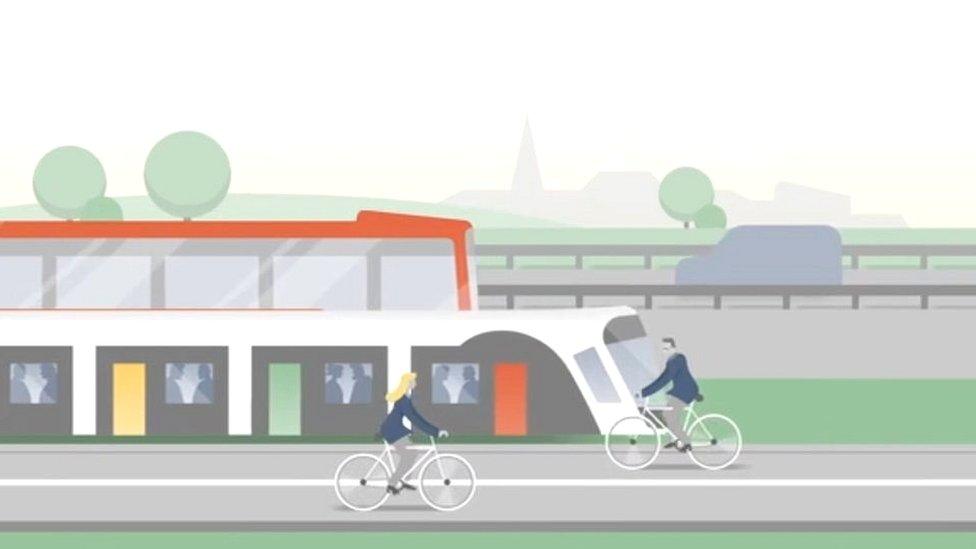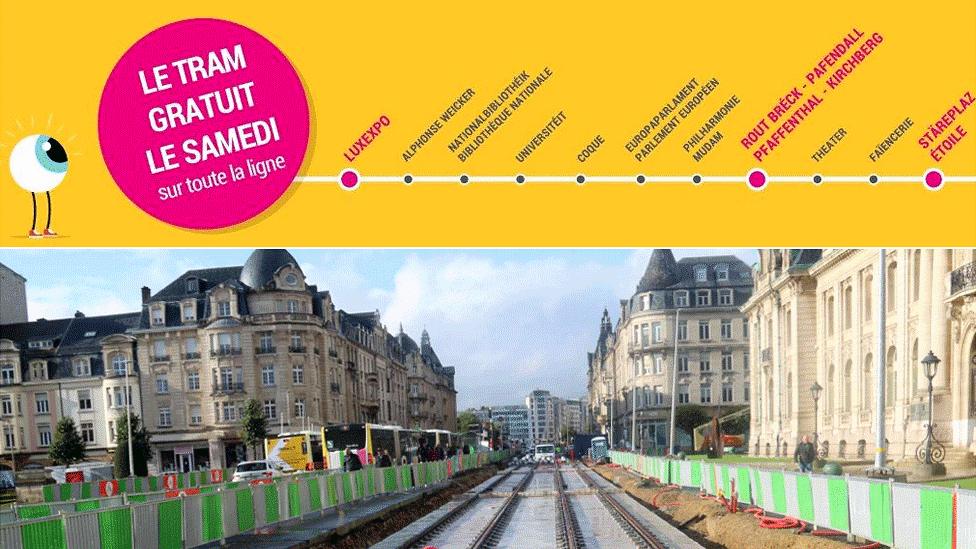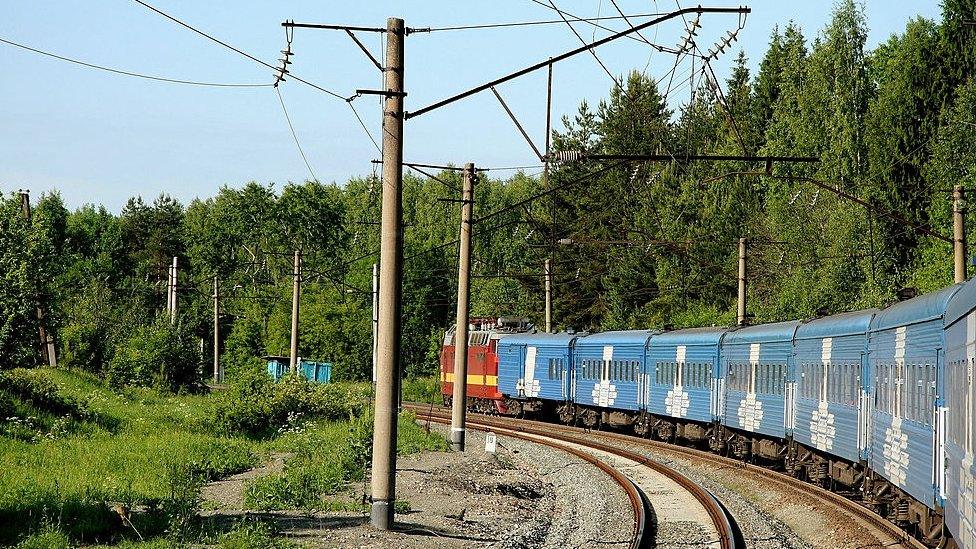Free transport in Luxembourg, but what's the cost?
- Published

The government has mounted a publicity campaign to highlight its overhaul of the transport network
It has had months of hype and now finally Luxembourg's free public transport has begun.
With a population of only 614,000, it may be one of Europe's smallest countries and the idea is not unprecedented.
But the "free mobility" drive has captured the imagination. Buses, trams and trains are now free to ride on and you don't need a ticket.
One aim is to ease traffic congestion but critics see it as a PR stunt.
"The government wants Luxembourg to become a laboratory for mobility," says Mobility Minister François Bausch, who points to the grand duchy's fast-rising population, with a rise of 40% in 20 years.
Some 200,000 workers - almost half of Luxembourg's workforce - commute from Belgium, France and Germany, attracted by high salaries and a wealthy economy.

One campaign poster compares the change to the first walk on the Moon

The big day is being heralded on Saturday with concerts at four train stations and numerous other events.
Markus Hesse, professor of urban studies at the University of Luxembourg, says the "bling bling" they have organised is the wrong solution to a complex problem.
One question is whether free public transport will really be free.
What is the cost?
Travelling on transport will be free for residents and visitors alike, except for first-class train passengers.
The price of the project will be the €41m (£35m; $44m) in lost ticket fares, but that will be shouldered by the taxpayer. "Of course, just because I call it free transport doesn't mean nobody pays," said Mr Bausch, who is part of Luxembourg's green party, déi Gréng.
The total cost of running the service is more than €500m so the government sees the lost fare revenue as relatively small. Transport staff will not lose their jobs, they will merely spend less time checking tickets.
It was not exactly pricey before 29 February. A fare cost €2, and double for a day pass. Many workers have their annual travel pass subsidised in Luxembourg, so few people spend much on transport anyway.
Why do it?
The government has several reasons:
It talks of a social measure that will hit higher taxpayers more than others
It wants to get cars off the road - as Luxembourg has more cars per 1,000 people than anywhere else in the EU
It aims to have 20% more passengers on public transport within five years
It will alert Luxembourgers to their country's environmental problems
It wants to invest in the transport network to cope with an already big increase in passengers


What's not to like?
Luxembourg has a terrible traffic problem. Major roads are snarled up in the rush-hour, buses are old-fashioned and the rail system is notorious for its delays.
Diesel and petrol costs are cheap in Luxembourg, compared with its neighbours, so not only do many commuters from neighbouring countries drive to work. but "fuel tourists" cross the border to fill their tanks.
The free public transport will not really deal with the car problem, according to Prof Hesse, because Luxembourg has "high salaries and low petrol prices so people buy cars".
Many of those commuting from neighbouring countries live in areas without decent public transport so he believes they will continue to drive. Luxembourgers who currently cycle may now get off their bikes to enjoy the free travel too.
He also believes the government has picked the wrong moment.

Luxembourg's tram system has been up and running since December 2017 and the network is still being built
The new tram network is being expanded, and money is going into the trains and bus system, but it will take time, he argues.
"They're investing so much that while the total system is being overhauled the delays are actually increasing, because they are working on tracks trying to fix it."
Will Luxembourg's infrastructure improve?
One of the key aims is to make public transport better, with a promise of almost €4bn on trains between 2018 and 2027.
The government estimates that the number of transport users will rise by 20% in the next five years and that the expansion of the tram network and buses will be able to deal with that.


Luxembourg spends more of its economic output on transport that most other European countries, with a reported €600 a year per person.
Critics complain the scheme will not tackle the lack of housing, which has forced thousands of Luxembourgers to emigrate beyond the country's borders while keeping their jobs.
Who else does free transport?
Estonia's capital, Tallinn, introduced free public transport in 2013 but only for residents. It has not ruled out extending the scheme to non-residents but does not want to pay the extra €20m it would cost.
The northern French city of Dunkirk (population: 200,000) also introduced free travel in 2018 and hailed a dramatic increase in bus passengers. It was such a success that it caught the eye of Paris Mayor Anne Hidalgo. As part of a mayoral campaign pledge she wants to introduce free travel for under 18s. She has previously mooted the idea of free transport for all Parisians, but that would work out at around €500 per household, which is widely seen as too expensive.

More stories on the challenges of transport
Cars will be more connected and shared in the future
- Published7 January 2020
